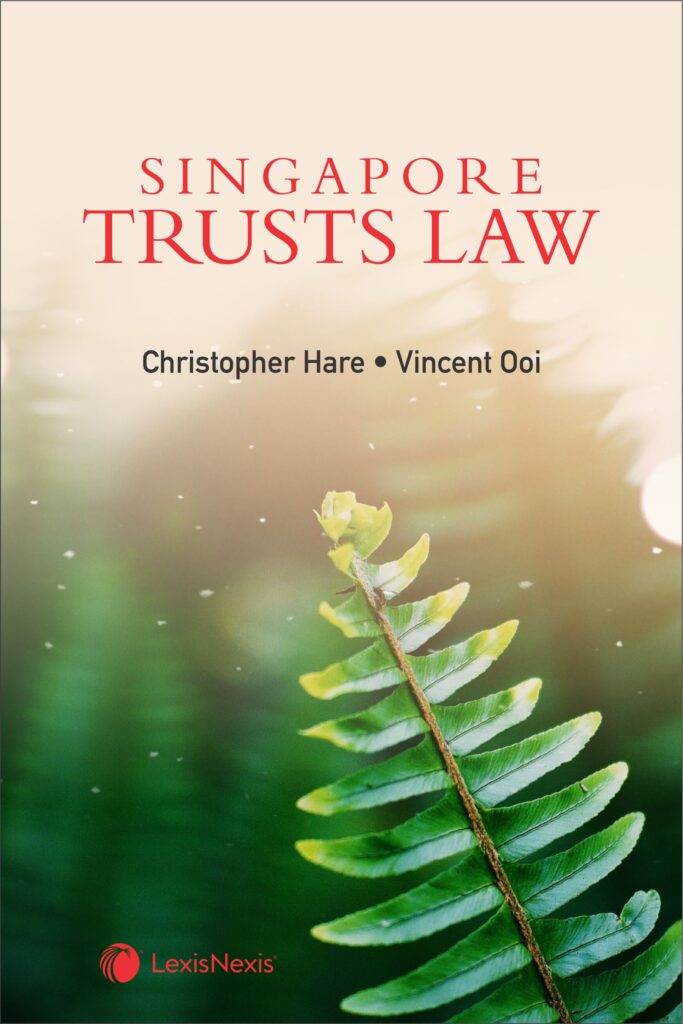
“An excellent work — comprehensive in scope and clear as well as perceptive in its discourse and analysis, with Singapore cases cited wherever possible.” (Justice Andrew Phang, “Trusts Law in Comparative Context” (2021) 4 MLJ clxxxvii-cxcvii, clxxxix)
“Provides a strong and detailed coverage of the current state of Singapore trust law.” (Dr Joyman Lee [2022] Singapore Journal of Legal Studies 485-488)
“Chapters provide a comprehensive, accurate, yet succinct survey of the law as it stands in Singapore… an excellent volume.” (Soh Kian Peng (2023) 35 Singapore Academy of Law Journal 459-461)
The development of an autochthonous legal system and jurisprudence in Singapore has meant that Singapore law has come a long way from its English roots. This is manifestly the case for the legal principles relating to trusts, where the efforts of our local judges, academics, lawmakers and practitioners have resulted in a rich jurisprudence that draws on the best legal thinking throughout the Commonwealth, while still retaining its own distinctive character. Developments in English law remain persuasive, although the Singapore courts have shown themselves ready to depart from these where they are inappropriate for the local context or where there are disagreements on principle. This is evident on such fundamental issues as the theoretical underpinnings of the express trust, the recognition of remedial constructive trusts and the approach to charitable trusts. Not only can legal divergence be important at a local level, but it can also give Singapore its own unique voice on the comparative and international plane.
As Singapore trusts law continues to develop, practitioners and students alike may increasingly find that scholarly works produced for the English legal market may not always accurately reflect the position adopted by Singapore’s higher courts nor advocate for policy positions that are appropriate for this jurisdiction. Accordingly, there was self-evidently the need for a textbook specifically addressing the legal principles and policies applicable to trusts in Singapore. Whilst other jurisdictions have been drawn upon in the absence of local precedent (unsurprisingly, English law still casts a rather long shadow), special care has been taken in writing this book to analyse local judicial precedents, legislation and academic writings where these are available.
This first edition of this book has been written with the syllabuses of the three local law schools in mind, focusing on the principal areas of trusts law as taught in these schools. Accordingly, the aim is that readers should find this book a helpful and accessible introduction to the principles of trusts law operating in Singapore, as it aims to lay out the fundamental concepts in a structured manner, without presuming prior knowledge of the subject matter. It is hoped that that the book may even act as useful refresher for the more seasoned practitioner and provide some additional insights in those areas where the book seeks to delve more deeply. Naturally, however, a book must be selective in its coverage. That said, it is envisioned that the book’s scope will be expanded in subsequent editions to include more detailed coverage of those areas that have greater practical significance, such as the private international law issues applicable to trusts, the use of trusts in the private client and wealth management contexts and the tax treatment of trusts. For this first edition, the authors have chosen to focus more on analysing the fundamental legal principles and theoretical foundations for trusts, rather than the myriad of issues that arise in practice. The law is stated as of 1 February 2021, although later developments have been included where possible.
Singapore Trusts Law, (1st Ed) (2021) (LexisNexis)
1. Equity and Trusts in Singapore
2. Basic Requirements for Express Trusts
3. Beneficiaries
4. Creation of Express Private Trusts
5. Trusts, Powers and Other Dispositive Mechanisms
6. Non-Charitable Purpose Trusts
7. Unincorporated Associations
8. Charitable Trusts
9. Resulting Trusts
10. Constructive Trusts- Overview
11. Common Intention Constructive Trusts
12. Remedial Constructive Trusts
13. Quistclose Trusts
14. Trustees
15. Fiduciaries and Fiduciary Duties
16. Following and Tracing
17. Rights Against Third Parties
18. Remedies
Authored by Christopher Hare and Vincent Ooi
The book is available at the LexisNexis Online Store.